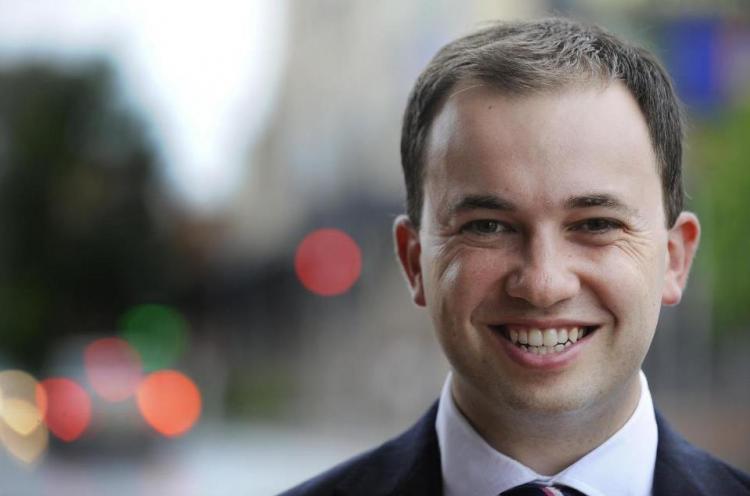
Mr MATT KEAN (Hornsby) [5.35 p.m.]: The community has been rightly outraged by the tragic and senseless death of young Thomas Kelly. At 18 years of age Kieran Loveridge already had a charge sheet that would make the most hardened criminals blush.
It included damaging property, assaulting a police officer, affray and violent assault. He had been let off lightly in the past with a mixture of probation and control orders. On the fatal Saturday night in question Loveridge was already on conditional liberty following a violent assault during which he had king hit a teenager at a party. After purchasing almost 48 standard drinks worth of alcopops, drunk and enraged, he attacked five innocent and unsuspecting strangers for no reason. Thomas Kelly was out with a couple of girls that night and had just picked up his mobile to have a chat to a friend. He had no idea he was in danger.
Having heard from the victim's family and read the material before the court, the judge said of Mr Kelly that he "must have been a wonderful young man full of promise for the future, and of whom his parents were justly proud". I have no doubt that is true. None of that mattered to Mr Loveridge. He just wanted to fight. He wanted to hurt someone and he did not care who. Loveridge hid out of sight, waiting for a stranger. When Mr Kelly approached Mr Loveridge lurched out, punched him in the face and ran away. Thomas Kelly never got the chance to negotiate, so the question must be asked: Why did Mr Loveridge?
Mr Loveridge was arrested at 7.20 p.m. on 18 July 2012 and charged with murder. Being sure he hit the victim in the face—though not remembering—Loveridge did not want a murder charge to be put in front of a jury. Nor did he want to plead guilty to murder. Judges give long sentences for murder. So he negotiated and offered to plead guilty to manslaughter if the murder charge was dropped. He put his offer in an envelope and sent it in. The Director of Public Prosecutions made the deal. In a backroom of the Director of Public Prosecutions offices it was determined that Loveridge would be charged with manslaughter, not murder. The judge felt it necessary to explain that such a deal was completely beyond his control and that the deal tied his hands in sentencing. His Honour said:
The most serious crime for which the offender is to be sentenced is manslaughter, not murder. These are different crimes involving a different order of seriousness. It would be a grave error to mistake them. It is solely for the prosecution to decide what charges to bring. This is nothing to do with the Court. It is for the offender to decide how to plead. Again, this has nothing to do with the Court.
Why the Director of Public Prosecutions decided to bring manslaughter and not murder charges is his own story, and he will have to tell it in his own words. In my view though, his decision was a disgrace. Surely, it should be for the community to decide through 12 of its representatives whether a man who goes on a drunken rampage and recklessly punches a stranger in the face is guilty of murder or manslaughter.
The deal was wrong in every respect. It was the community's right to sit at the back of the courtroom and see justice done, as witnesses told the court that Mr Loveridge was guilty of what he was originally charged with—murder. It was the community's job to decide whether he was guilty of murder. The Director of Public Prosecutions did not allow that to happen. He preferred to take the easy deal and deny the community the opportunity to judge its own. No wonder the public is fed up. The death of Thomas Kelly should not be in vain. This alcohol-fuelled violence must stop. It is our responsibility to send the strongest possible message that there will be serious consequences for those who drink and assault others. It is time to come down tough and we can start by removing intoxication as a defence or a mitigating factor in crimes involving assaults. It was a mitigating factor cited by Justice Campbell in his judgement.
In addition, I think it is a disgrace that our Director of Public Prosecutions was allowed to bargain murder to manslaughter. The directorate is supposed to protect us. From now on it is time to mandate that where alcohol causes a violent death, the Director of Public Prosecutions can allow a guilty plea to murder only, or let a jury try the offender against the community's standards. I want to be able to tell mums and dads in my electorate of Hornsby that their son or daughter can have a night on the town without fear of being assaulted by an alcohol-fuelled and violent person. We need to get tough on crime. I acknowledge the Hon. Greg Smith's efforts to create a new offence, which will go a long way towards stopping such assaults. However, we have more to do. My suggestions will go some way towards making that happen.
